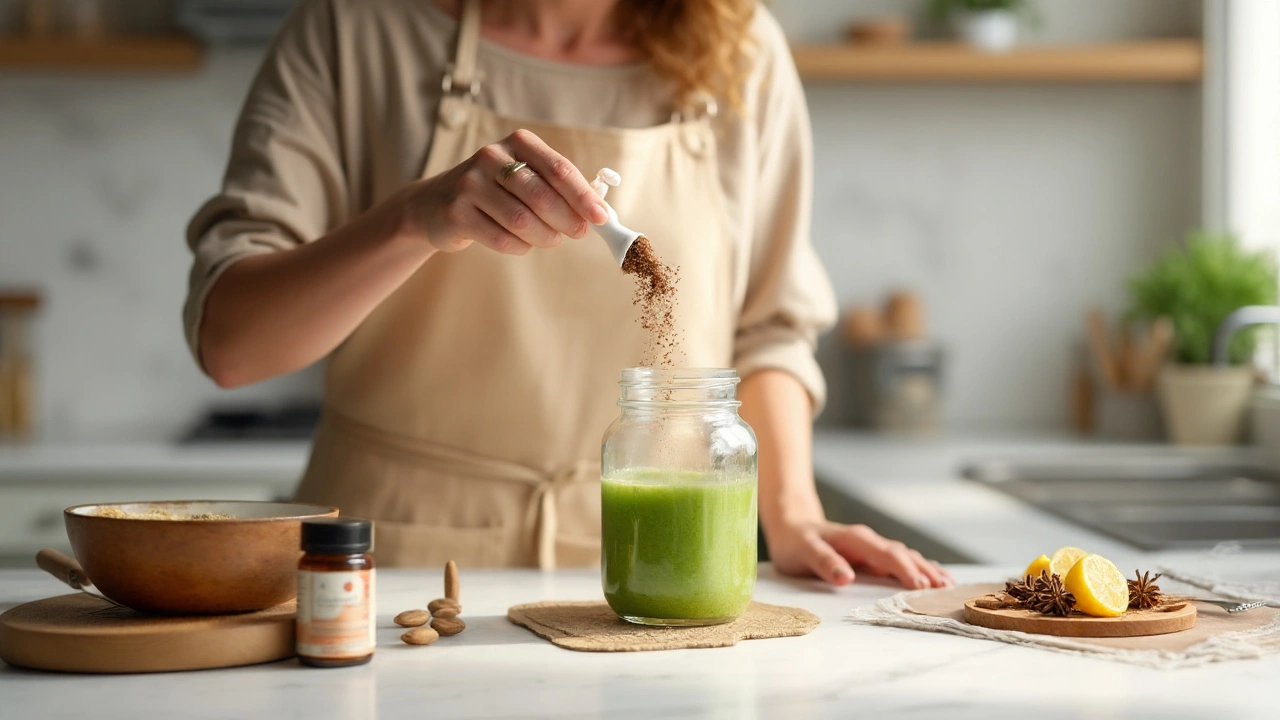Allspice Supplement: Benefits, Risks & How to Use Safely
Ever wondered why some people add allspice to their daily routine? It’s not just a kitchen spice – the powdered bark of the Pimenta dioica tree is marketed as a natural supplement for digestion, inflammation, and even mood support. Before you pop a capsule, let’s break down what the research says and how to keep things safe.
What is Allspice and Why It’s Used as a Supplement?
Allspice comes from the dried berries of a tropical evergreen. The flavor mixes hints of cinnamon, nutmeg, and clove, which is why it’s a favorite in cooking. The supplement world claims the same compounds work inside the body, especially eugenol, quercetin, and various antioxidants. These chemicals can help reduce oxidative stress, ease mild stomach upset, and support a healthy immune response.
Most products are sold as capsules, powders, or teas. The typical dose ranges from 300 mg to 600 mg of standardized extract per day, but the exact amount depends on the brand’s potency. If you’re looking for a gentle digestive boost after a heavy meal, a low dose (around 300 mg) is a common starting point.
Tips for Safe Use and Dosage
First, check the label for a standardized extract. That tells you how much eugenol you’re actually getting. Without standardization, you could end up with too little to notice an effect or, worse, too much and experience irritation.
Start low and go slow. Take one half‑capsule with food for the first three days, then see how you feel. If you tolerate it well, you can increase to the full recommended dose. Don’t exceed 1,000 mg per day unless a health professional tells you otherwise.
Watch for side effects. Some people report mild stomach cramps, heartburn, or a slight buzz if they take a lot. Those with gallbladder issues, ulcer disease, or a history of liver problems should talk to a doctor before starting.
Pregnant or breastfeeding moms should avoid allspice supplements altogether – the high eugenol content can be unsafe for a developing baby.
Mixing with medications is another red flag. Allspice can thin blood slightly, so if you’re on blood thinners (like warfarin) or antiplatelet drugs, you might increase bleeding risk. Always give your pharmacist a heads‑up.
Store your supplement in a cool, dry place away from sunlight. Heat and moisture can degrade the active compounds, making the product less effective.
Finally, treat the supplement as a complement, not a cure. Allspice can aid digestion or mild inflammation, but it won’t replace a balanced diet, regular exercise, or prescribed meds for serious conditions.
Bottom line: Allspice supplement is a low‑cost, natural option for people looking to support gut health or reduce occasional inflammation. Stick to the recommended dose, watch for side effects, and consult a health professional if you have any chronic conditions. With the right approach, you can enjoy the spice’s benefits without the guesswork.
-
22
Discover how the allspice dietary supplement works, its key health benefits, safe dosage, and how it stacks up against other natural supplements.
Tags Weight
- online pharmacy
- side effects
- medication safety
- dietary supplement
- dosage
- online pharmacy safety
- drug interactions
- generic drugs
- health benefits
- allergy relief
- autoimmune disease
- antibiotic
- pharmacy reviews
- affordable antidepressant
- gut health
- safe online meds
- prevention
- patient safety
- NSAIDs
- drug interaction

